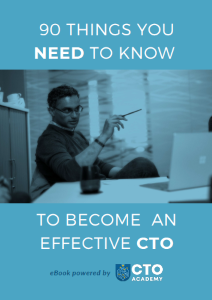“You like potato and I like potahto, You like tomato and I like tomahto
Potato, potahto, tomato, tomahto, Let’s call the whole thing off”
– Ira / George Gershwin
When CTO Academy started in 2018 we were in classic lean start up mode.
We thought we had a good idea but were not sure what the product should look like or even whether the market would be interested.
So we launched an MVP and started to build a product on the basis of market validation.
We started with some initial management lectures, pushed them out behind a quickfire adwords campaign and received sufficient market encouragement to start building the product from there.
One of the demands we started picking up from some of our tech leaders was a requirement for more hands on encouragement, guidance and insight.
Requests ranged from needing help with process, to team building or just a sense check that they were doing the right thing and so we launched a mentoring service in 2019 but in truth, there was an ongoing internal debate within our team about nomenclature and what is the difference between mentoring and coaching?
Well there are lots of online articles clamouring to explain the difference.
General consensus appears to be that whilst a mentor/mentee relationship is often long term and open-ended, some of them spanning decades, the coaching dynamic is more formal and used to address very specific issues and targets. Once that challenge has been addressed, both parties generally move on from a coaching relationship.
From our experience mentoring and coaching, at least in the traditional sense and as explained above, often blur into each other.
We’ve been asked to go into situations where and address an immediate problem which requires ‘coaching’ but the relationship then develops into a more hands off, longer term need focused around bedding in process or helping them map out and execute a career road map.
Those definition purists might suggest we’ve moved into mentoring territory?
Traditionally the mentoring relationship was an internal one.
An experienced member of the company, helps mentor a more junior colleague.
Coaching is generally seen as a more commercial relationship though there has been some devaluation of the term ‘coach’ due to the amount of people describing themselves as ‘business coaches’ but with wafer thin credentials.
They’ve got the book, the podcast and keynote speaking gigs, but little coalface experience.
But in reality what we provide here at CTO Academy is a hybrid of both and most of those looking for advice don’t really care. What they care about is the process adds value and delivers outcomes.
If you’re in need of external help – whether described as mentoring or coaching – follow some of the following principles;
Does talking to them help me reflect differently on my role and/or career?
Are you receiving genuine insight?
Do you step away from the calls feeling you’ve used that time well?
Do they inspire you to think more deeply?
Do they provide you with actionable advice?
Are they good at sticking to arrangement or always moving dates?
Do they relate well to who and where you are?
These are the kinds of questions you should be asking yourself after each session and certainly the types of question we ask during any follow up feedback and/or exit surveys.
We adapt our service to what an individual requires.
Whilst we launched with a ‘mentoring’ service it soon became clear from feedback and benchmarking that our interactions and input were better described as ‘coaching’.
There was a brief moment during our internal debate on nomenclature when someone suggested that, just as brunch has emerged as a describer of that moment between breakfast and lunch, we should consider launching a “Coatering” service.
That idea and its nominator, were quickly run out of town. Coaching will do for us.
If you’re interested in finding out more about the CTO Academy coaching/mentoring sessions, you can book a FREE discovery session and chat with one of our experienced CTOs. Book your session here.
Tons of articles out there explaining the difference between mentoring and coaching.
This is one of the more interesting, a study of 100 mentor/mentee relationships.
90 Things You Need To Know To Become an Effective CTO

London
2nd Floor, 20 St Thomas St, SE1 9RS
Copyright © 2024 - CTO Academy Ltd